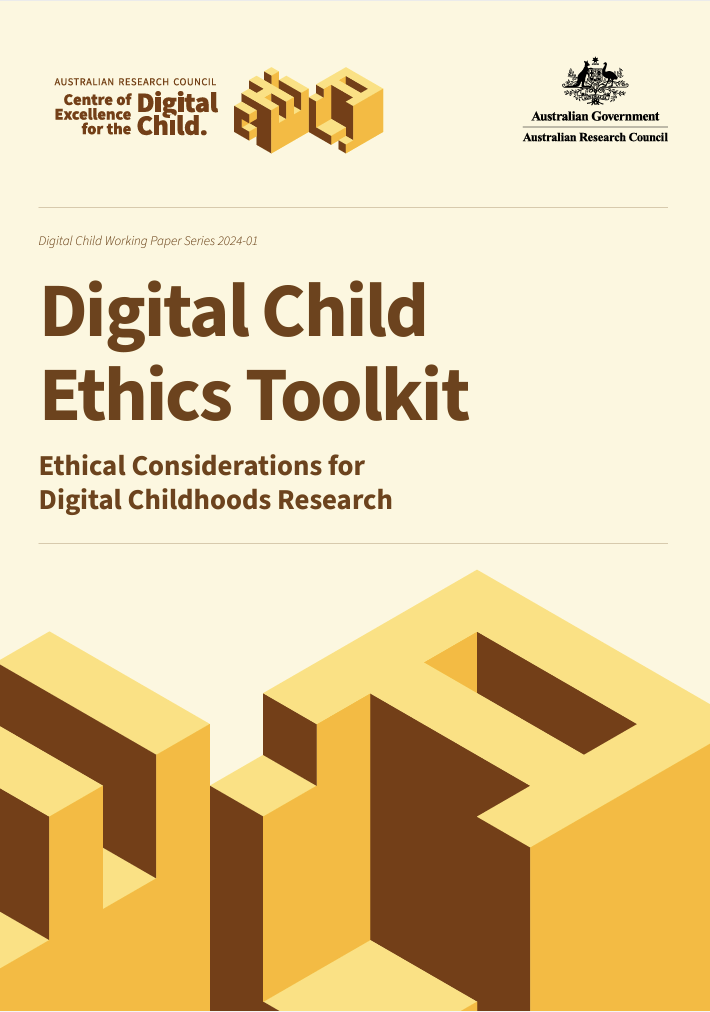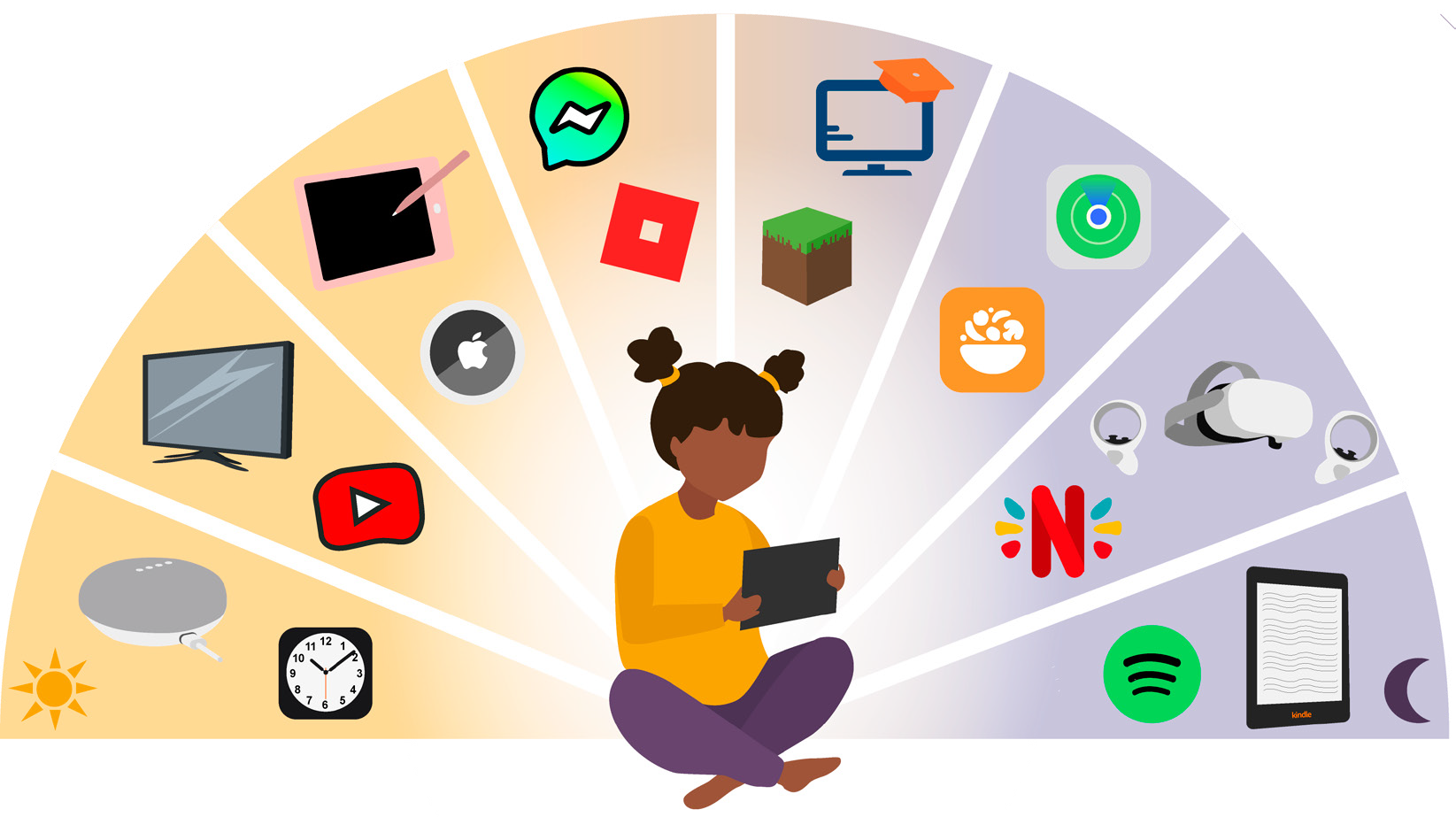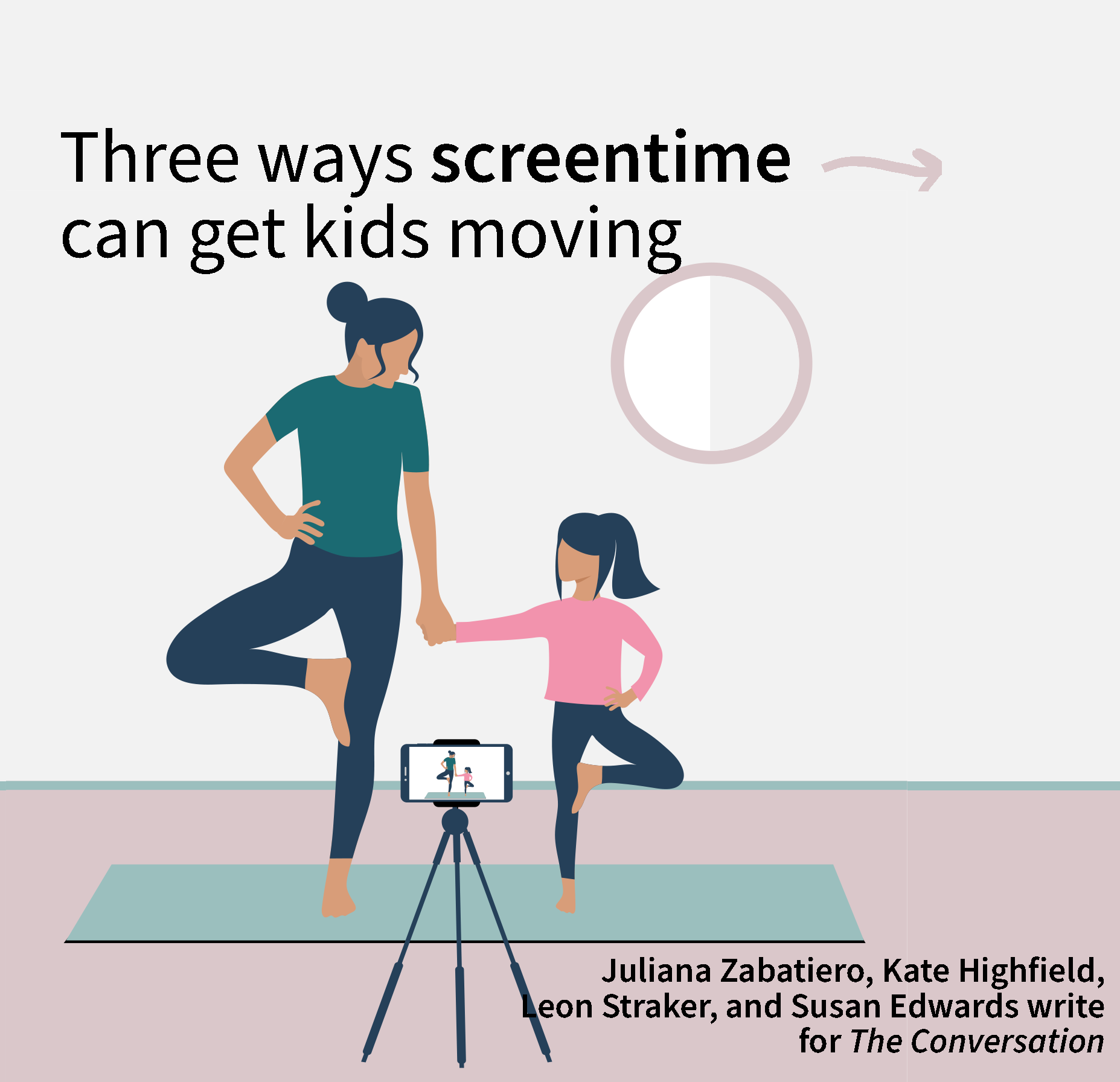Looking for new resources related to children and digital technologies?
Try this list of publicly accessible content from the start of 2024
The risks and benefits of online gaming for children and young people
Published by the Australian eSafety Commissioner
Online gaming is a popular way for children and young people to relax, socialise and have fun but there is much more that can be done to level-up their safety while gaming online.
This report looks at the gaming experiences of 1,799 children and young people in Australia aged 8 to 17 years old who play video games online. It draws on the results of a mixed-methods study carried out by eSafety in August and September 2023.

Digital Child Ethics Toolkit: Ethical Considerations for Digital Childhoods Research
Published by the Digital Child
There is a growing body of scholarship that examines how very young children and their families relate to, adopt, and engage with digital technologies. This research typically involves a range of ethical considerations. Yet, as an emerging field, it can be difficult for researchers and ethics committees to find standards of practice or evaluate risks and benefits.
To support researchers working in this area, this toolkit outlines ethical considerations across three main dimensions of research: contexts (such as researching in the home, health settings, or early learning centres); methods (such as ethnographic approaches, web-scraping, or using wearable devices); and cohorts (such as infants and toddlers, children with disabilities, or educators).

How can we make the internet better for children?
Published by ABC Education. Written by Michael Dezuanni and Aleesha Rodriguez
The internet wasn’t really created with kids in mind. At the ARC Centre of Excellence for the Digital Child, we believe it is possible to create a better “Children’s Internet” and we have developed some principles about how to do this.

The responsibility to manage children’s use of digital media is often unevenly distributed between parents
Published by ABC Education. Written by Katrin Langton and Xinyu Zhao
Digital parenting is strongly associated with the responsibility to moderate device use and children’s exposure to screens. But research suggests this responsibility is often not distributed evenly and that this “digital labour” commonly falls to the primary caregiver — predominantly the mother.
Using screens can affect a child’s physical health and development, but that doesn’t mean screens are bad
Published by ABC Education. Written by Leon Straker and Juliana Zabatiero
People often worry about how the use of digital technology affects the physical health and development of children and young people. So for more than 20 years, our team at Curtin University’s School of Allied Health has been researching these physical implications. We’ve identified two types of risks: risks while using screens, and risks because using screens replaces other activities. But we’ve also developed some ways to think about screens and screen use that parents and professionals may find useful.

‘It’s about making our children feel proud’: how schools can learn about local Indigenous language and culture
Published in The Conversation. Written by Marnee Shay, Fred Cobb, Grace Sarra, and Margaret Kettle
Schools can play a big role in Indigenous language revitalisation and creating a strong sense of identity and belonging for students, supporting their wellbeing and learning. Our new research shows how this can be done through co-designing curriculum resources with local communities that privilege local knowledge, strengths, stories and languages.

Screen time doesn’t have to be sedentary: 3 ways it can get kids moving
Published in The Conversation. Written by Juliana Zabatiero, Kate Highfield, Leon Straker, and Suzy Edwards
“Screen use” and “not enough exercise” are (separately) among the top health concerns Australian parents have about their children. But screens are not necessarily the enemy of exercise. Our research looks at how screens can help children be physically active.

Looking for more resources?
